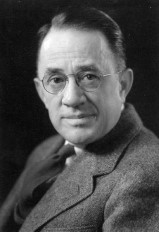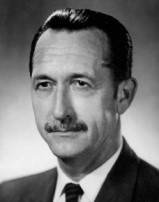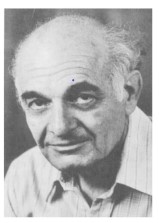“Cornell University was a pioneer in the application of the survey method of obtaining data.”
Ray Jessen, Director of the Iowa Statistical Laboratory, at the American Association for Public Opinion Research’s Fourth Annual Conference on Public Opinion Research held at Cornell University, Ithaca, New York, June 19-22, 1949
Robert Groves, former director of the U.S. Census Bureau, identifies the 1930s through the 1960s as the “first era” of survey research, in which the founders of the field developed both the methodologies of a new science and the institutional structures for survey research. Core survey research methodology emerged from the work of commercial pioneers of polling, government statisticians, and academic survey researchers. Certain academic institutions became synonymous with the early days of survey research, including the Bureau of Applied Social Research at Columbia, the National Opinion Research Center at the University of Chicago, and the Survey Research Center at the University of Michigan. Lesser known are the considerable contributions of Cornell University to the development of the field during this period, when Cornell faculty in sociology, government, statistics, anthropology and other disciplines helped pioneer this new approach to gathering data.

Professor Jessen, in noting the importance of Cornell to the study of sampling methods, was referring to work in the field of agricultural economics, one of the disparate fields from which survey research drew.

Cornell Professor George F. Warren had built on the U.S. government’s use of mailed questionnaires to obtain information about the cost of producing crops, establishing the farm survey as a fundamental tool in farm management research. While this work was essential to the development of agricultural economics, these survey techniques were adapted by researchers in other fields, particularly sociology.
Under the leadership of Professor Leonard Slater Cottrell, Jr., the Cornell Department of Sociology and Anthropology grew with a strong focus on survey research as a central methodology. World War II created an unprecedented demand for the information survey research could provide, and Cornell became deeply involved in one of the most instrumental efforts to meet that need: the American Soldier Project.
The U.S. government, concerned about GI morale, appointed Professor Samuel Stouffer of Harvard to direct a series of surveys of the troops, an ambitious effort to understand the average soldier’s concerns and attitudes. Professor Cottrell of Cornell was one of the academics recruited to work on the design and implementation of the surveys. This research produced regular reports for military officers during the war and resulted in a highly influential multi-volume work, The American Soldier, published in 1949. Of the fourteen co-authors on The American Soldier books, four were affiliated with Cornell: Cottrell, Robin M. Williams, Jr., Louis Guttman, and Edward Suchman.

Professor Williams continued to work in survey research through a long career at Cornell. He served on the inaugural five-member Committee in Research Development created by the American Association for Public Opinion Research and eventually as president of the American Sociological Association. His survey research examined many topics, including Americans’ attitudes toward atomic power before and after the 1946 Bikini Atoll Nuclear Tests, as well as race relations, which he argued deserved more attention from scholars. To better understand race and community relations, Williams, along with his Cornell colleagues and students, spent eight years conducting survey research in Elmira, New York, Steubenville, Ohio, Bakersfield, California, and Savannah, Georgia, as well as conducting a national sample of 248 cities.[i]

(1916-1987)
Louis Guttman joined the Cornell Sociology Department in 1941 but left Ithaca in 1947 to found the Israel Institute of Applied Social Research. During his time at Cornell, he developed the Guttman Scale, sometimes called Cornell scaling, an approach to measuring attitudes using multiple questions along a one-dimensional continuum. Guttman’s work in this area was named one of the 62 major advances in social science between 1900 and 1965 by Science magazine. Edward Suchman became chair of the Department of Sociology and Anthropology and served in that role for a decade, building the department and collaborating with Guttman on research to improve survey question wording and with Williams on research on race relations. This work includes “A Solution to the Problem of Question `Bias’,” published in Public Opinion Quarterly in 1947 and Strangers Next Door: Ethnic Relations in American Communities, published in 1964.
Suchman’s efforts included bringing statistician Phillip McCarthy to the department. McCarthy joined Cornell in 1948 under a grant from the Social Science Research Council to improve methodology in survey sampling. He brought his expertise in this area to the famous Elmira Community Study of voting behavior. Led by the Bureau of Applied Social Research, this innovative multi-wave survey of voters pre- and post-election was one of the first cross-sectional panel surveys ever conducted. The study was designed and conducted in collaboration with University of Chicago and Cornell. McCarthy, along with Cornell professor John Dean, developed the sample for the survey and collected and analyzed background information on the community of Elmira, New York, which is about thirty miles from the Cornell campus.
In 1949, the Cornell Social Science Research Center (CSSRC) was established. With an initial budget of just $4,000 a year, the center had muted impact until 1950, when the Ford Foundation provided a $300,000 grant. As described by the Ford Foundation: “The purpose of the grant is not the support of research projects as such, but rather the development of the personnel and the improvement of the conditions and facilities for effective research. Success is, therefore, not to be measured so much by research findings per se as by an increase in the number or capacity of research workers, the improvement of their methods, and the enhancement of their facilities and resources.”
CSSRC provided administrative assistance, physical resources, training, assistance in securing external funding, fellowships, and direct support for pilot and smaller projects. Survey research at Cornell was nurtured by CSSRC, resulting in several major projects (see Figure 2).

One of these was the Cornell Values Study, a survey series funded by the Carnegie Corporation on the attitudes of university students on many topics, including the Cold War and military service in the Korean War. The largest part of the sample came from Cornell, but ten additional universities also conducted fieldwork. This was not the first survey of college students – Joe Belden had pioneered that effort more than a decade prior while a student editor of The Daily Texan newspaper in Austin. But the sample was extremely large, and the series continued for several decades, with some questions repeated at intervals. This research resulted in many articles, such as “Attitudes Toward the Korean War” published in 1953 by Suchman, Goldsen, and Williams in Public Opinion Quarterly, and the book, What College Students Think, led by Cornell Sociology Professor Rose Goldsen.
Support from the Carnegie Corporation also launched the Cornell Cross-Cultural Methodology Project. This large undertaking provided essential research on the applicability of survey research methods across countries. Surveys were fielded in India, Peru, Thailand and Nova Scotia, Canada, and included multiple experiments in question wording, administration, and format.
From hosting the 4th Annual AAPOR conference to classic early surveys such as the Elmira Community Study of voting behavior and the American Soldier Project, to pioneering the science of survey sampling and question wording, Cornell faculty and students played a leading role in the “first era” of survey research.
Cornell continues to be a leader in the field of public opinion and survey research
With major institutions like the Cornell Survey Research Institute and its annual Cornell National Social Survey, Cornell continued to be a public opinion leader in what Groves calls the second and third eras. In the last decade, Cornell’s influence on the public opinion and survey world has grown further. With the transition of the Roper Center for Public Opinion Research—the world’s largest public opinion archive—to Cornell in 2015, the establishment of the new Cornell Center for Social Sciences (CCSS) in 2019, broad faculty expertise in public opinion research, and the 2022 Collaborative Midterm Survey, Cornell’s efforts to support and advance survey research are as vibrant today as in the earliest days of the discipline.